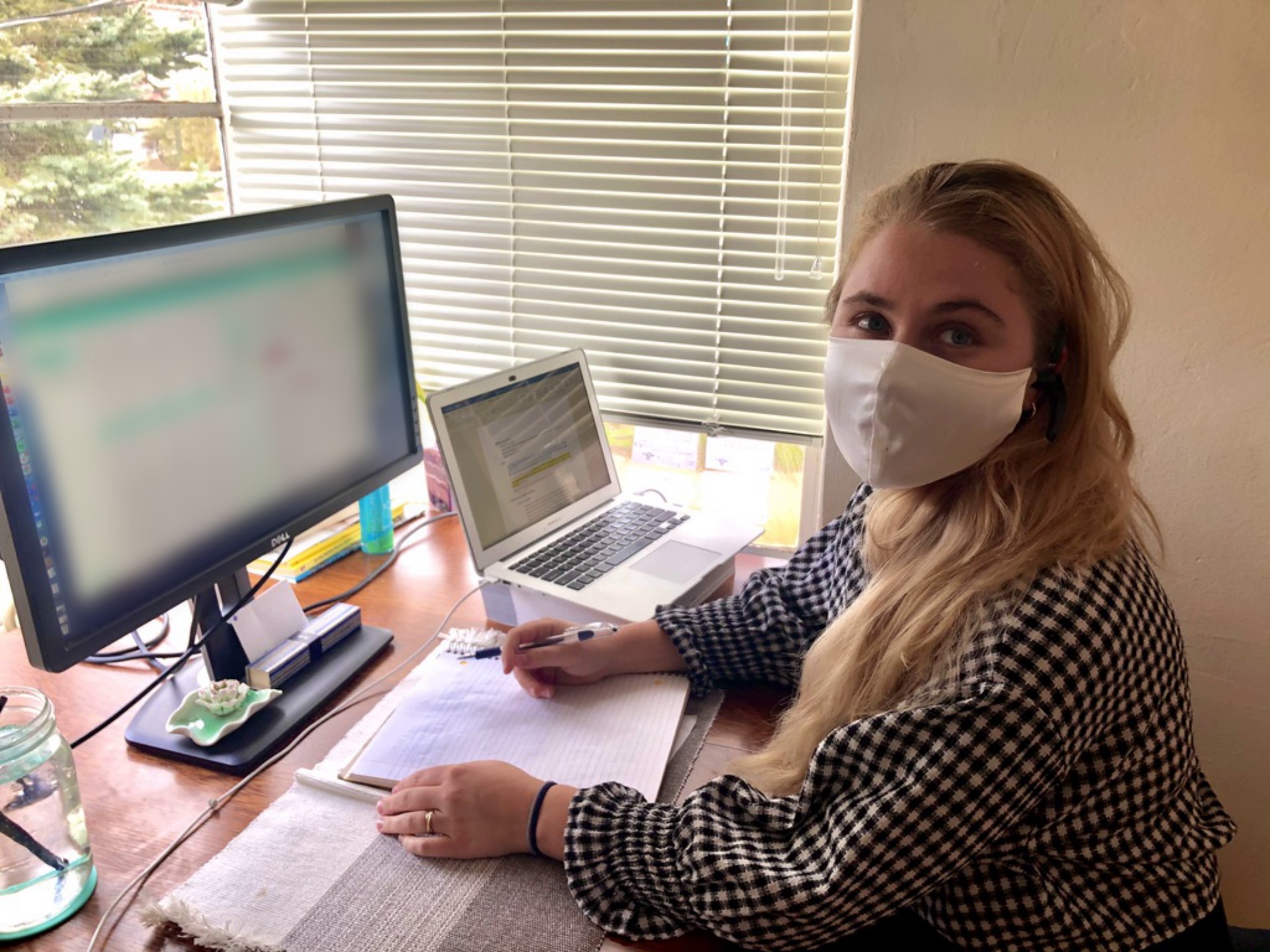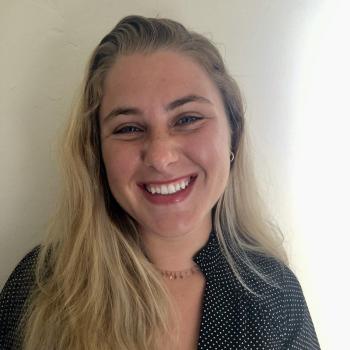My First Few Months at the San Francisco Department of Public Health

Hey! My name is Sophia. I grew up in the East Bay Area, left briefly for college, and am now happily back in my hometown. I serve as a COVID Responder and Opioid Safety Coordinator at the San Francisco Department of Public Health (Primary Care Branch, Population Health Management Team). I also serve on NHC San Francisco’s Training and Corps Support Committees.
Due to the pandemic, I serve fully remotely and spend three days of the week disclosing results to and conducting case investigation (CI) interviews with individuals who have tested positive for SARS-CoV-2. The CI process entails assessing the case’s symptoms, isolation end date, and need for assistance, such as food and cleaning supplies, as well as registering their activities and contacts from their infectious period. When cases live with many other people and cannot safely isolate – given the cost of housing of San Francisco, this situation arises frequently – we also link them to Isolation & Quarantine hotels, where they can safely isolate alone.
AmeriCorps case investigators (CIs) at SFDPH are also tasked with demo-ing a new Case Investigation workflow. Unlike other SFDPH CIs, AmeriCorps CIs have access to both CalConnect, the statewide case investigation/contact tracing platform, and Epic, the medical record system that the San Francisco Health Network (SFHN) uses for its patients. This allows us to link SFHN patients who test positive for SARS-CoV-2 directly to their care teams, thereby facilitating continuity of care and maximizing the probability that someone is ready to help if they fall ill.
After these initial months, I am grateful for the opportunity to talk to patients during what is likely one of the more difficult moments of their lives. For some, testing positive for SARS-CoV-2 brings social isolation, loss of employment, and the threat of permanent physiological damage, if not respiratory failure and ultimately death. For those reasons, I am especially grateful for the patients who, after I have delivered very bad news, take a second to wish me and my family well.
When I’m not on shift for case investigation, I conduct outreach to patients in the San Francisco Health Network to address overall care gaps, including overdue influenza immunizations, and review opioid safety reports for errors. In the coming months, I hope to learn more about the Department’s opioid safety efforts and see San Francisco’s SARS-CoV-2 infection rate and case load come down.
